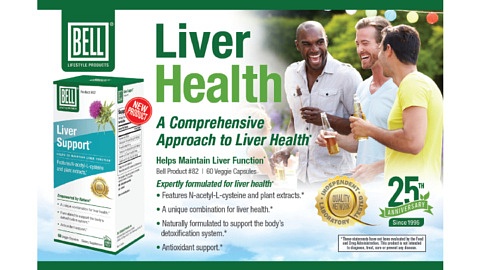The liver is an organ located within the abdomen, weighing approximately 3 lbs. This vital organ is part of the digestive system. Although there are many...
Things You Should Know About Irritable Bowel Syndrome.
First things first: any severe abdominal pain that keeps recurring or is persistent should mean a trip to your primary care doctor for evaluation. Your doctor will rule out things like appendicitis, gall bladder or kidney stones, ulcers, and other serious illnesses.
However, perhaps the most common chronic digestive illness, where pain is a primary feature, is irritable bowel syndrome (IBS). As many as 20% of the adult population has symptoms of IBS: abdominal pain, cramping, abnormal bowel movements, bloating, fullness, and gas. In IBS, bowel movements can either be loose and watery, or constipated, or a combination. These symptoms are experienced a few days each month for at least three months for doctors to consider the diagnosis of IBS.
Note that most people with IBS have a milder level of pain, however, there are many with IBS who experience this recurrent pain as excruciating, and debilitating – in fact, IBS symptoms are one of the most common reasons for missing work. Other symptoms that may also occur in IBS are headaches, fatigue, and joint pain, and also anxiety or depression.
Medically there is no consensus as to the cause for this illness; however there are many associations and theories:
- Many IBS-sufferers react to specific foods
- In many cases the symptoms began after a bad intestinal infection, so there is a subset of IBS known as “post-infectious IBS.”
- Symptoms may develop after or during significant amounts of stress
- Many research studies point to the importance of the connections between the immune system, intestinal nerve sensitivity, and the brain.
- Researchers at St. Mary’s Hospital in London found that certain immune cells are very numerous in the intestinal lining of IBS sufferers, and that this correlates to IBS symptoms such as intestinal muscle spasms and intestinal nerve hypersensitivity.
- Some people with the most severe types of IBS also have lower vitamins in their body, especially vitamin B6, an important vitamin for proper nerve function, and mental health.
Treatment of IBS
Based on the above associations, there are a variety of treatment approaches that can help reduce or resolve the symptoms of IBS. The first level of IBS treatment involves improving digestive functions overall; this means doing regular physical exercise, relaxation exercises, and a better diet. A better diet may mean more fiber, such as from fruits and vegetables, or from ground flaxseed or psyllium seed. It can also mean finding out which foods may trigger or aggravate your IBS symptoms. As a naturopathic doctor, I often recommend doing an “elimination diet” to determine which are your trigger foods – common ones include wheat, dairy, broccoli-family foods, and beans.
Another level of treatment for IBS works on the mind-body connection. The gut and brain are connected in that there are more nerve cells in the intestines than in our spinal cord – so the gut is the body’s second brain. The gut also contains 95% of the body’s neurotransmitter, serotonin. Naturopaths and psychologists can explore the connections of your symptoms to see if they relate to past or on-going stressors in your life. Once found, the next step is to help guide your mind to influence and resolve these connections that perpetuate your symptoms. A 2012 Swedish study, published in the Scandinavian Journal of Gastroenterology, found that gut-focused hypnosis benefited over 80% of the research participants who had IBS. So, treating the mind-gut connection makes a lot of sense for people who suffer with IBS.
Besides medications that can be given to relax the colon, other options also exist: peppermint and artichoke leaf herbal extracts, acupuncture has also shown to benefit those with IBS symptoms.
Related Posts
December 15, 2022 – South Haven Michigan – Liver Support
Bell Lifestyle Products announced today their new Liver Support product for the U.S....
Men’s Digestive Health
Bell LifestyleMarch 31
Whether it’s flat or flabby, gut health is
an important factor in overall health. Medically speaking the gastrointestinal
tract (GI tract) is a complex...
December 15, 2022 – South Haven Michigan – Liver Support Bell Lifestyle Products announced today their new Liver Support product for the U.S....
Men’s Digestive Health
Bell LifestyleMarch 31
Whether it’s flat or flabby, gut health is an important factor in overall health. Medically speaking the gastrointestinal tract (GI tract) is a complex...
Categories
- Allergy Relief
- Bell Lifestyle News
- Brain and Vision Health
- Depression
- Digestive Health
- Eating Healthy
- Energy Boosts
- Fitness
- Foods for Energy
- Heart and Lung Health
- Herbs
- Immune System Support
- Lifestyle
- Men's Health
- Mental
- Motivation
- Natural Remedies
- Nutrition
- Pain Relief
- Physical
- Recipes
- Relationships
- Sexual Health
- Skin and Hair Health
- Sleep Health
- Social
- Stress Relief
- Uncategorised
- Videos
- Weight Management
- Women's Health
- Your Wellness Now
Follow us on Twitter
#90 Bladder One for Women™ is a convenient one-a-day capsule for urinary tract health, featuring herbal extracts in… twitter.com/i/web/status/1…
May 2023Urinary tract infections - UTI: To treat or prevent? That is the question. Find out more about causes and treatme… twitter.com/i/web/status/1…
May 2023"How you feel is very important to how you look. Healthy equals beautiful." - Victoria Principal #womenshealth https://t.co/OPShoEbOXb
May 2023
© Copyright 2025. All rights reserved.



